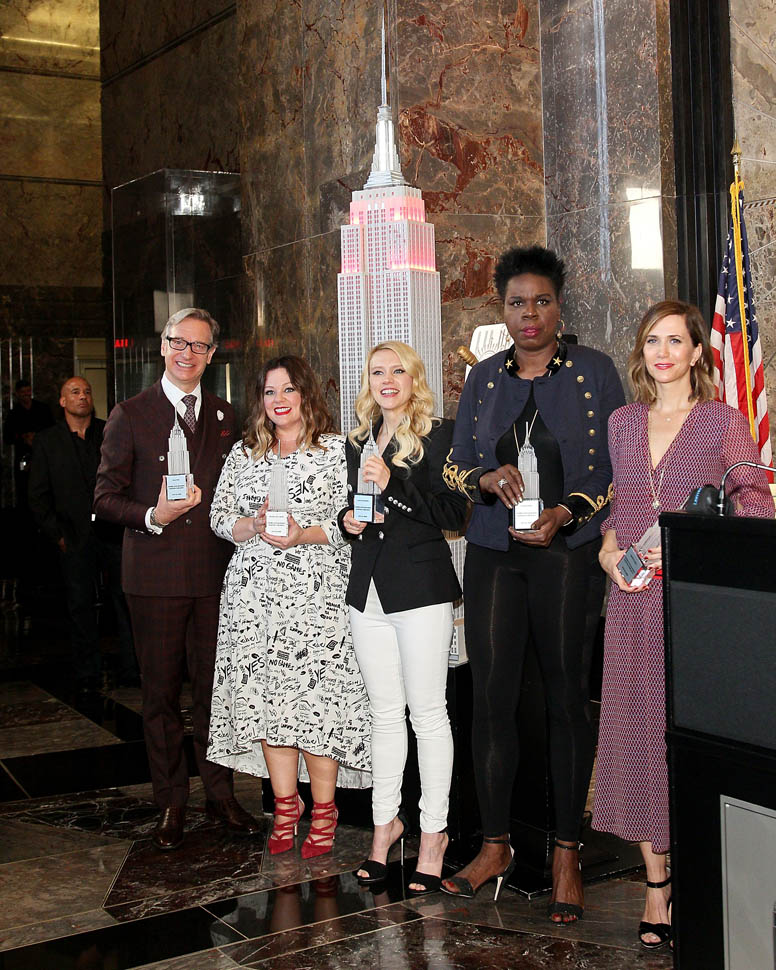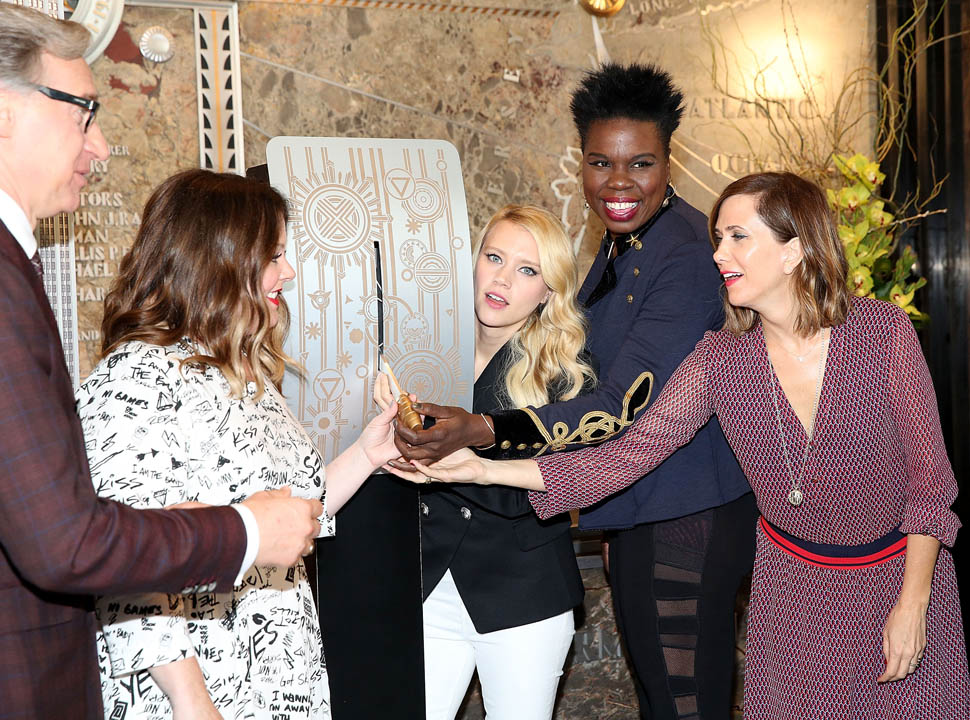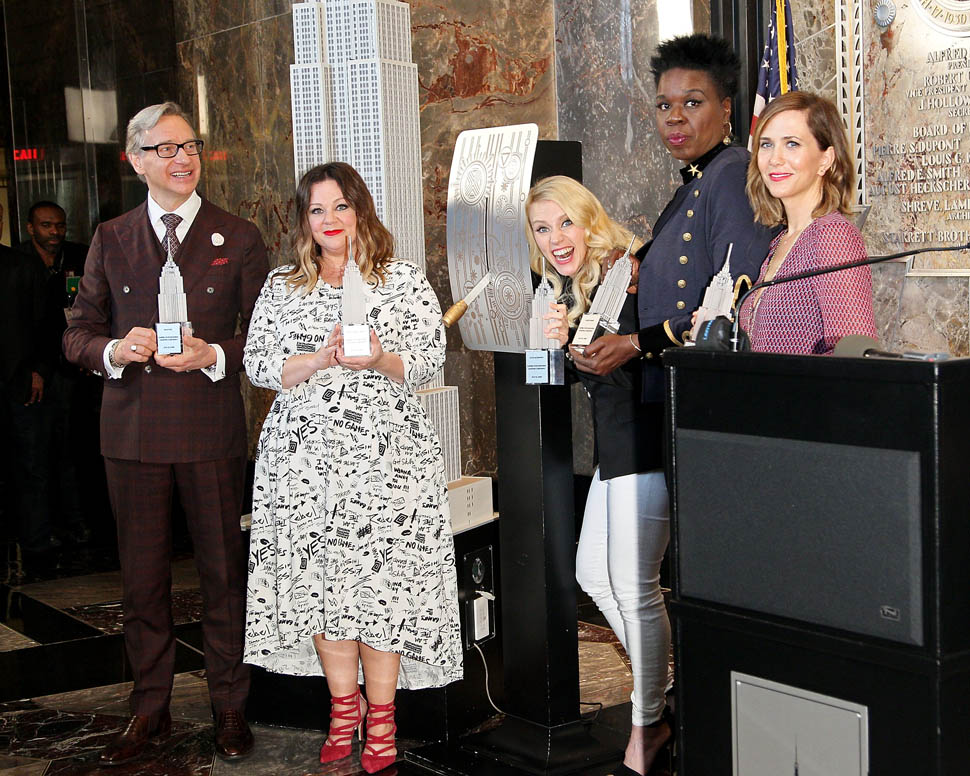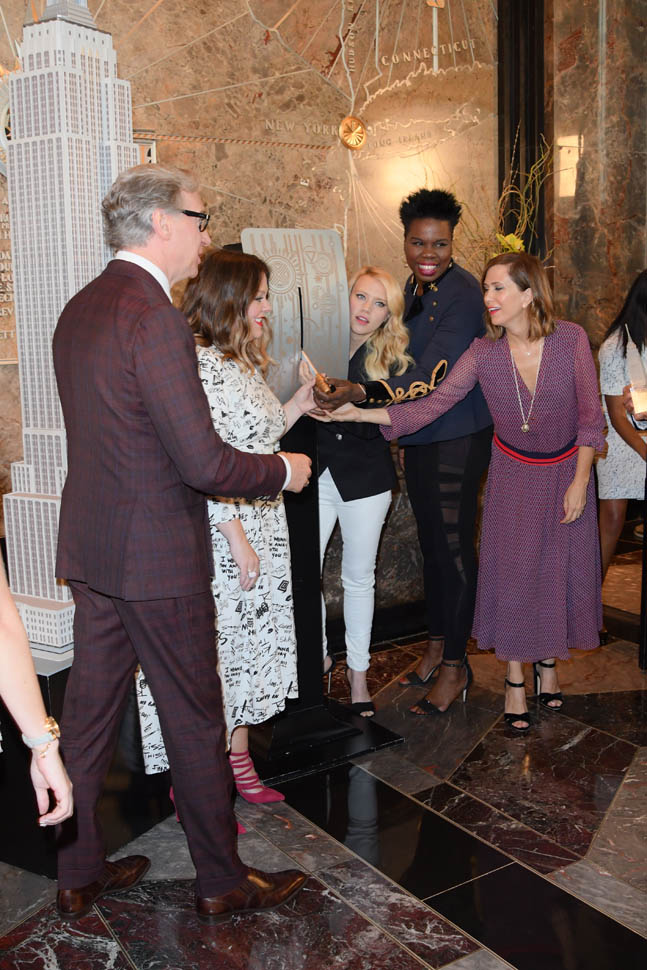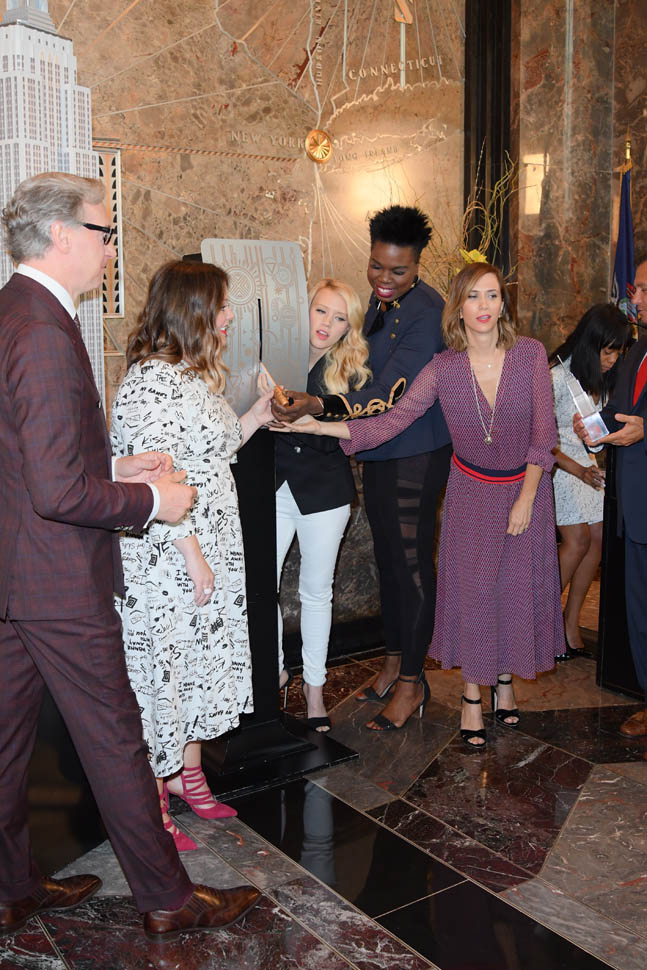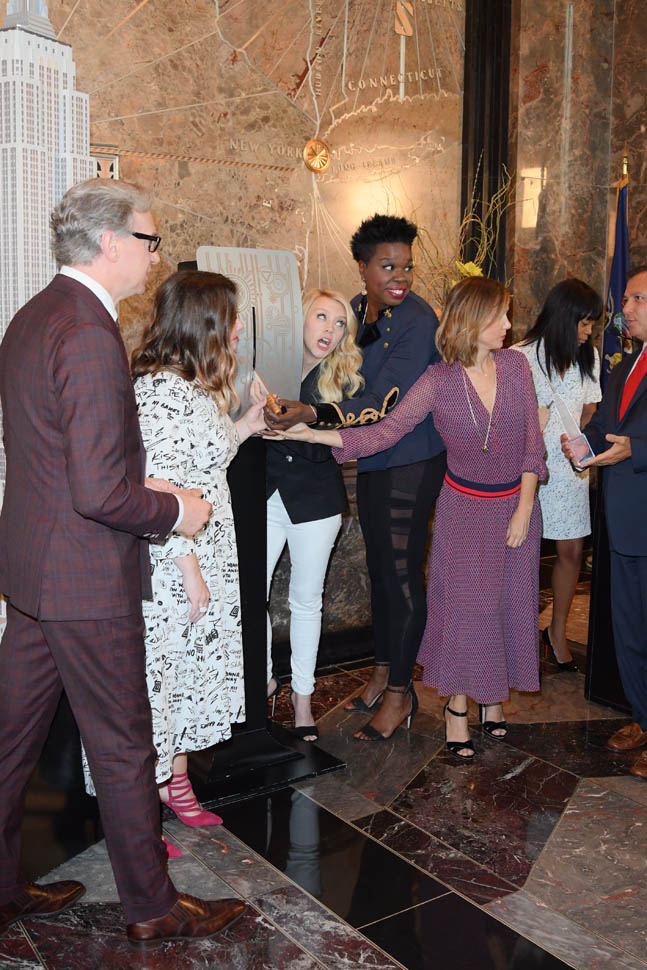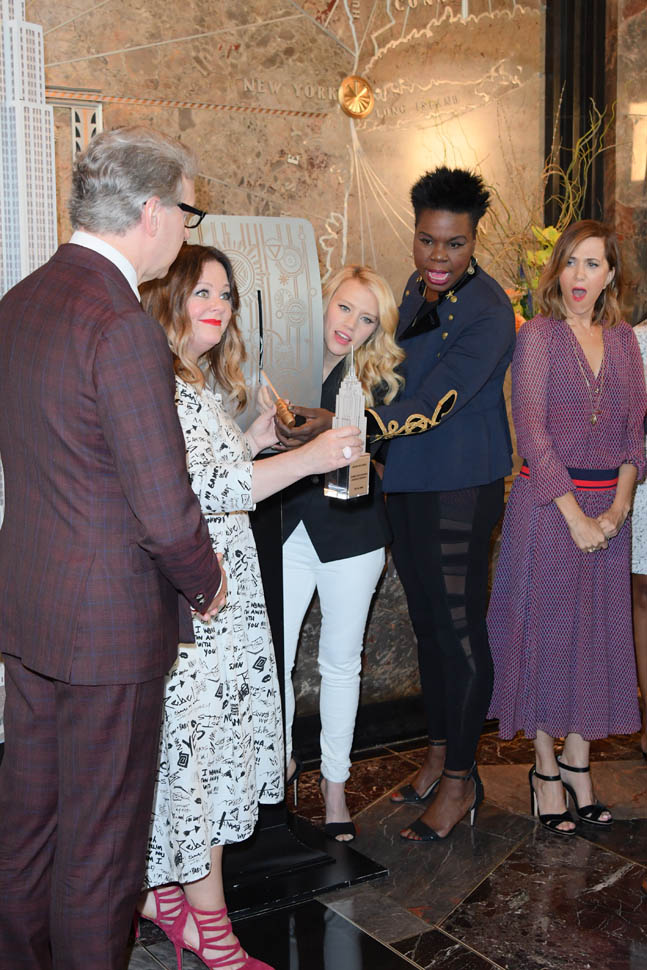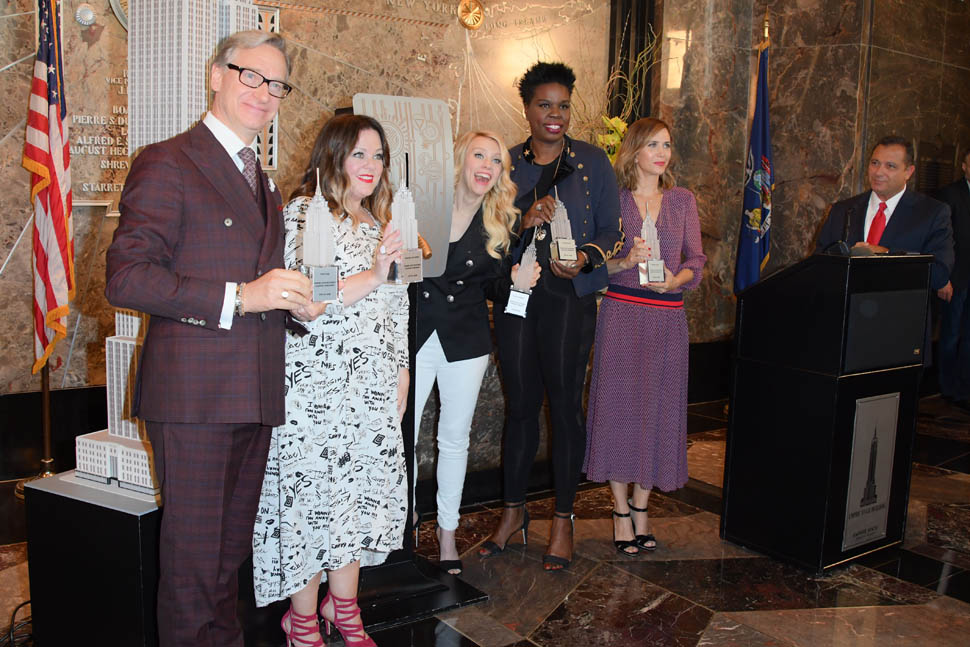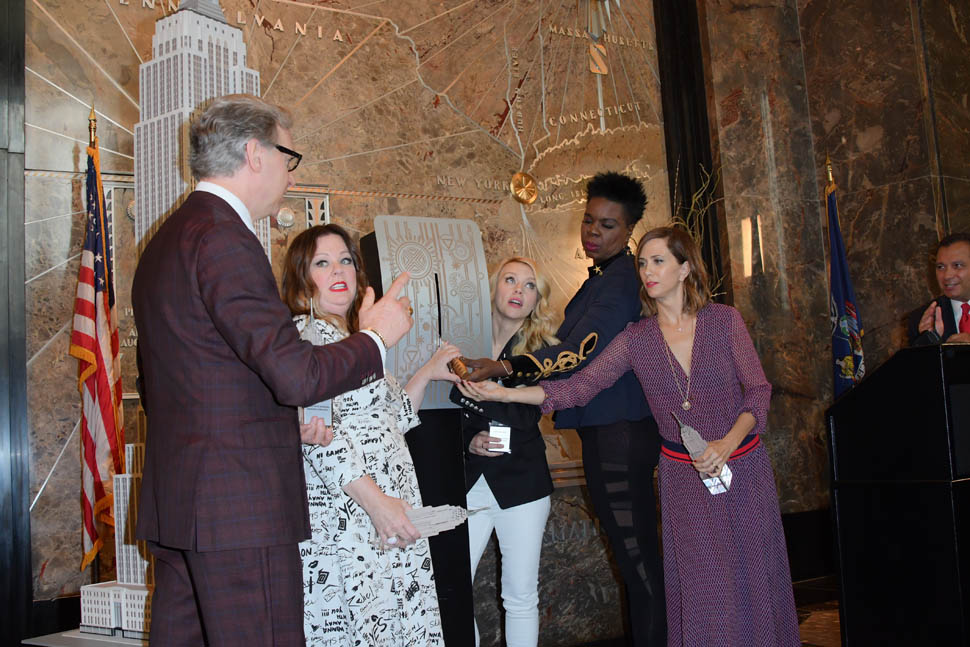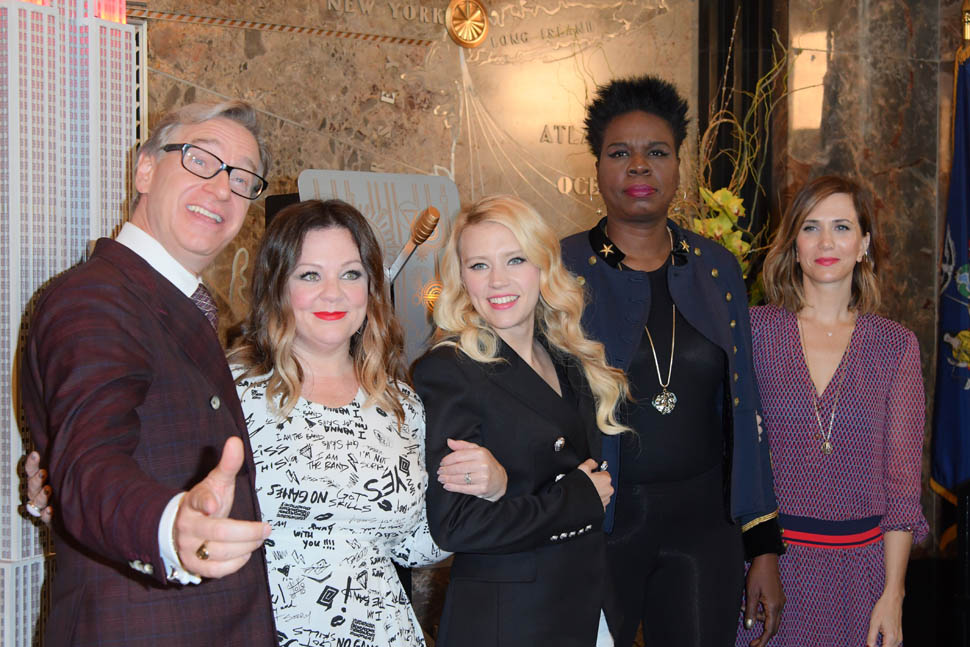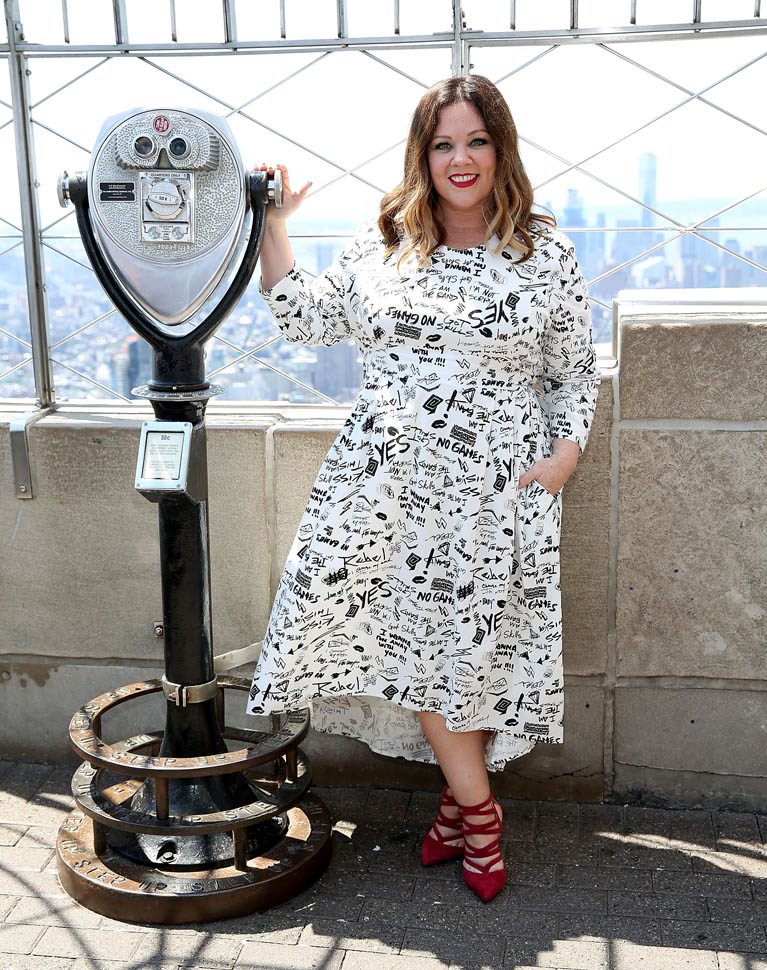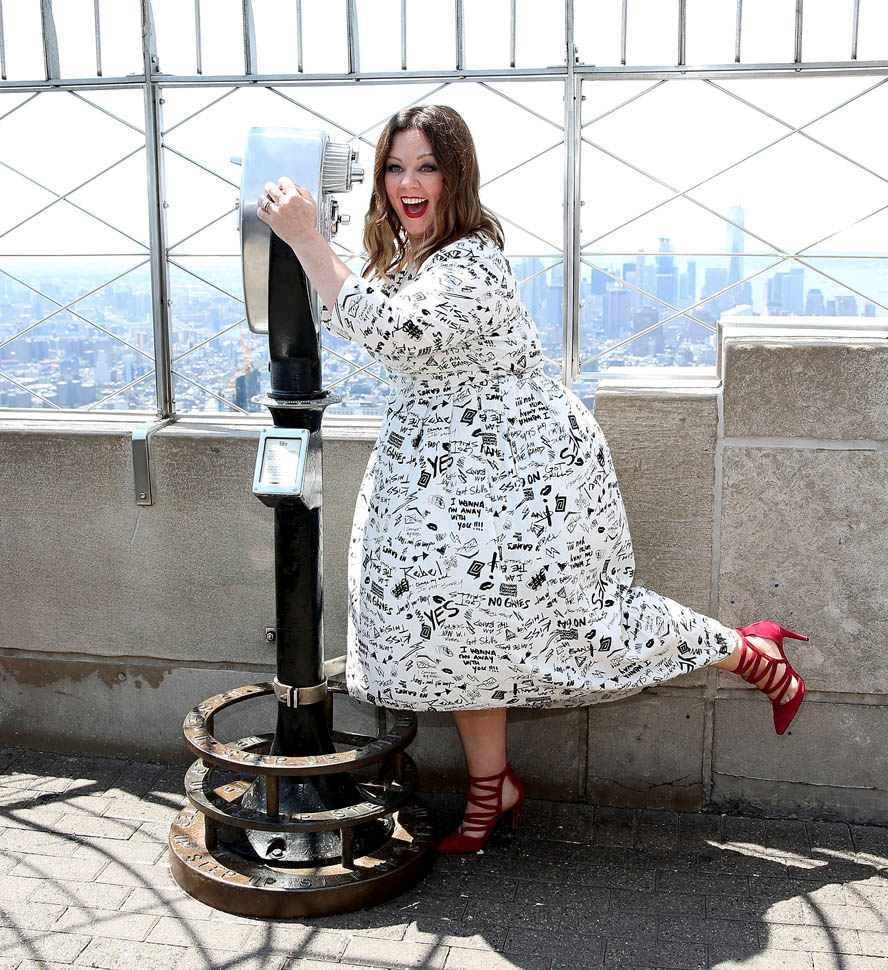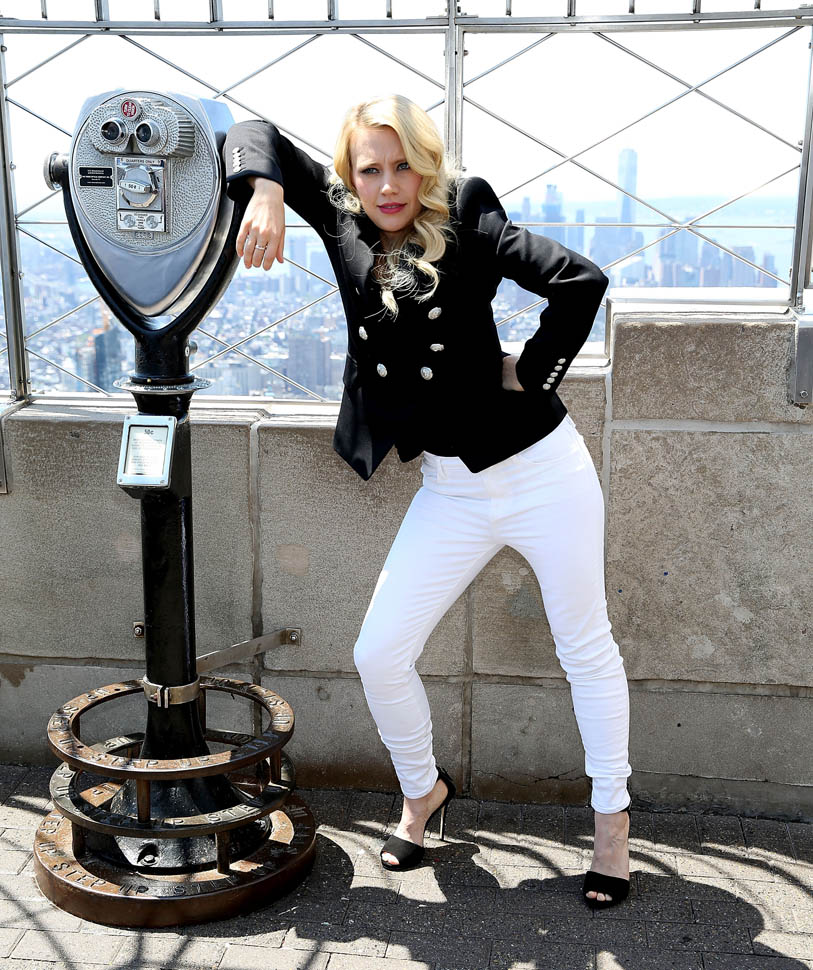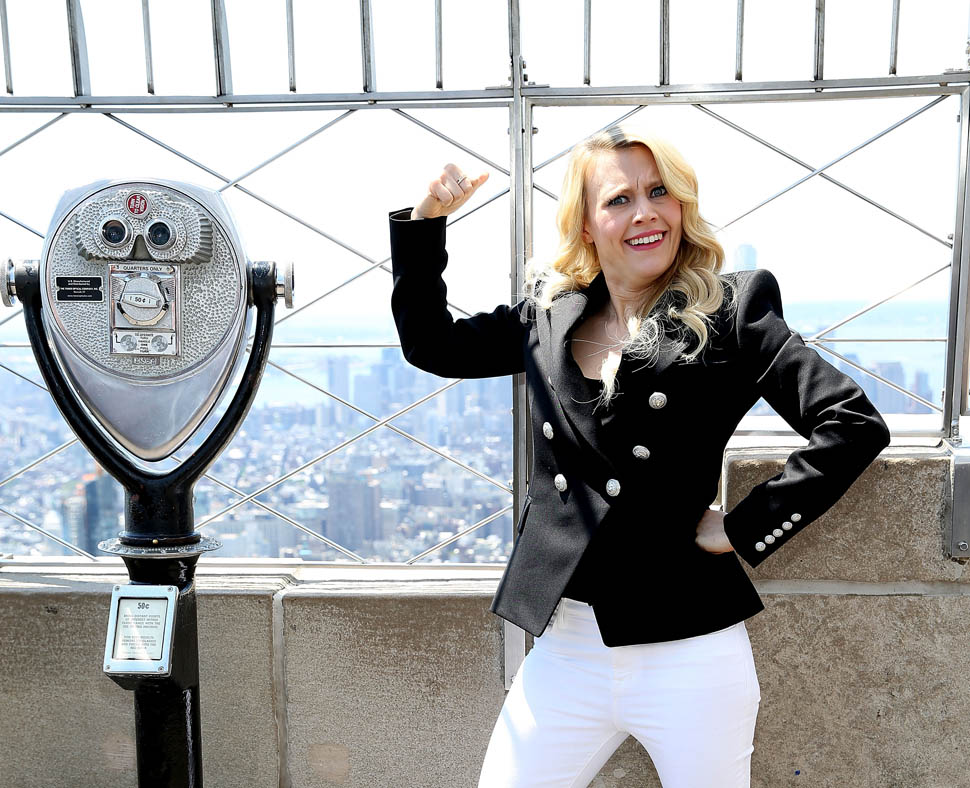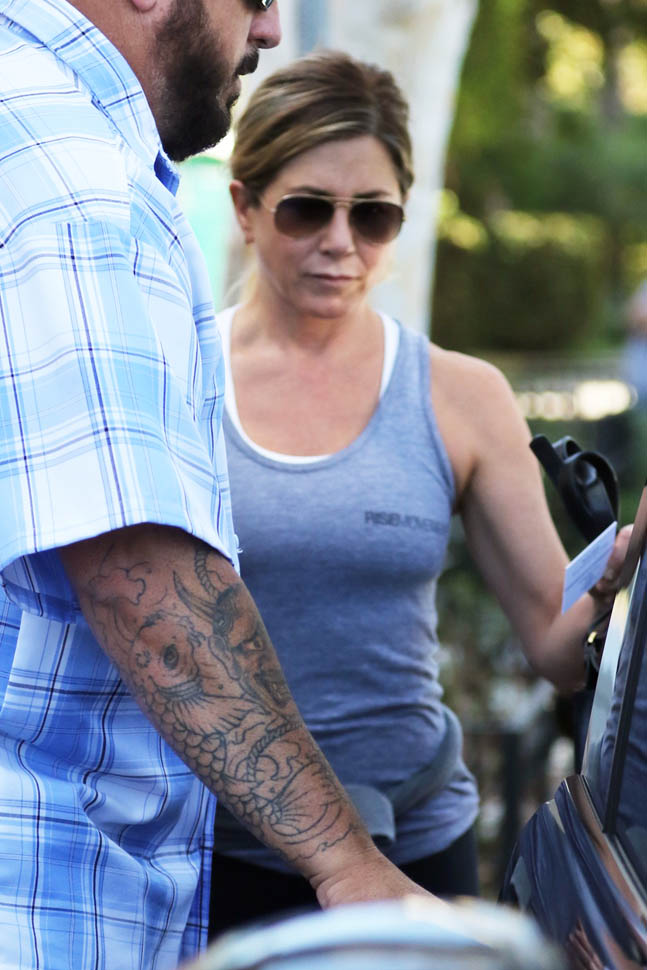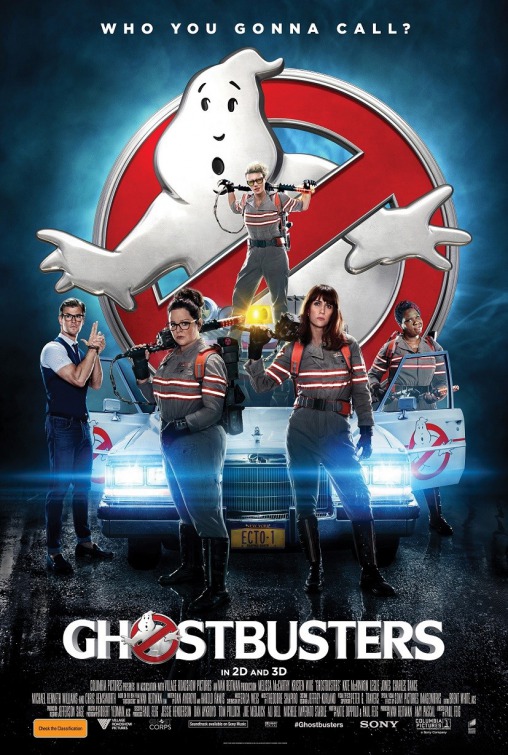Four Funny Women in Ghostbusters


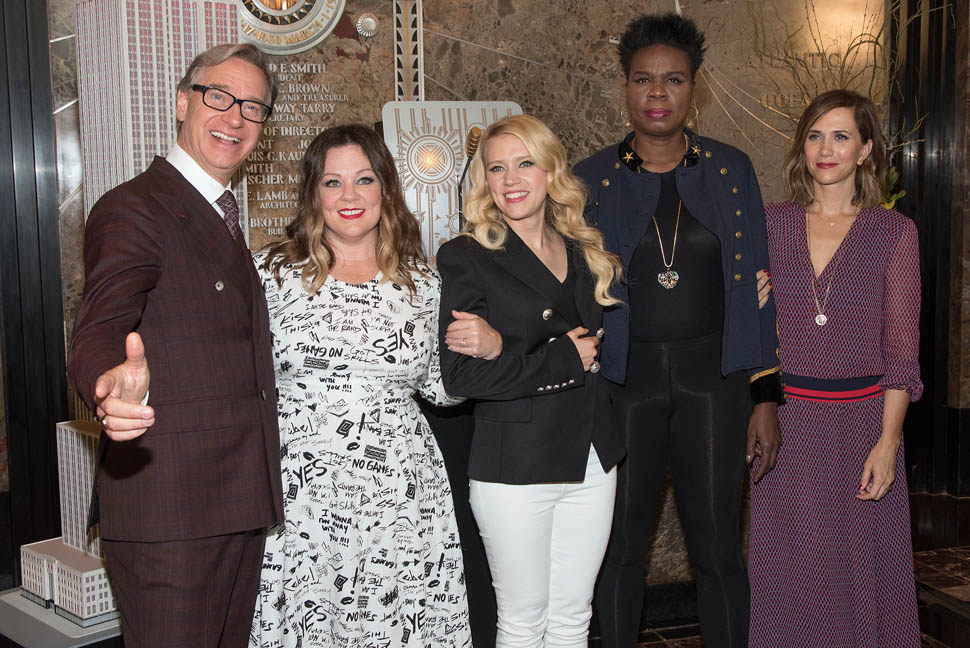
Ghostbusters starts with a laugh, as an historical mansion tour guide—Silicon Valley’s Zach Woods, doing more in five minutes than many can do in an entire film—gives his spiel about the supposed haunting of the “Aldridge Mansion”, describing a murderous daughter entombed in her home’s basement (shades of Erszebet Bathory). His monologue is blazingly funny, scoring a big laugh from the first line, and it’s punctuated with an acute feeling of relief: Oh thank god. It’s going to be good.
Reimagined for 2016 with a female cast, Ghostbusters has been a lightning rod of controversy ever since it was announced, and has become inseparable from the politics of inclusion and representation. Unfortunately, this can’t just be a movie—it’s become a political statement just by existing and challenging the notion that male interest is the driving force in entertainment. Ghostbusters, co-written by Kate Dippold (The Heat) and director Paul Feig, is aware of its dual identity as film and political statement, though for the most part they let the jokes speak for themselves—and they speak well.
Kristen Wiig stars as Erin Gilbert, a buttoned-up physicist about to get tenure at Columbia when an embarrassing textbook on the paranormal that she wrote years ago pops up on Amazon. The book was co-authored with her childhood friend and fellow ghost enthusiast, Abby Yates (Melissa McCarthy), but they have since had a falling out. Kate McKinnon stars as Jillian Holtzmann, Abby’s more recent best friend and an utterly mad scientist who thinks nothing of building radioactive gadgets for her friends to handle. And Leslie Jones plays Patty, an MTA worker and history buff who joins the Ghostbusters.
Jones’s character came under fire for being stereotypical, but Patty is not a stereotype. How can you tell? Imagine the character as played by someone—anyone—else. Patty’s defining traits are “people person” and “history buff”—literally anyone of any description can play that character. As played by Leslie Jones, Patty does display Leslie Jones tics, such as brashness and a tendency to shout for emphasis. But that’s not stereotypical, either, that’s just one actor’s identifiable traits, the same way Erin is in the “uptight nerd” mold of Kristen Wiig performances. When it comes to its quartet of heroines, Ghostbusters works hard to individualize and empower each one.
The male characters, though, not so much. Former SNL writer Neil Casey stars as Rowan, the bad guy, and he’s an obvious surrogate for the moaning pissbabies who have made this entire Ghostbusters thing such a living nightmare. He’s an entitled, narcissistic jerk mad at the world for ignoring him, without ever once considering that it’s his arrogant, sneering attitude that puts people off. He’s not the best villain, but Feig and Dippold certainly drew that character sketch accurately.
And Chris Hemsworth stars as Kevin, the ’Busters dipsh*t beefcake secretary, a man so dumb he should by all rights be dead. Hemsworth proves to be the movie’s secret weapon—he’s hilarious, nailing both Kevin’s blithely oblivious approach to life and his whiny insistence that he be included as a ’Buster. Hollywood has been trying to figure out what to do with Hemsworth for years—put him in comedies. This is where he’s most comfortable and effective.
The first two-thirds of Ghostbusters clicks right along, with the cast meshing immediately and playing off each other easily. There are some hiccups, almost all of which come when the movie stops to acknowledge the original 1984 movie. It’s a rock and a hard place, because if they didn’t nod to OG Ghostbusters, people would be upset, but the new cast is so good they don’t need to rely on nostalgia and it just slows them down. Overreliance on nostalgia aside, Ghostbusters starts really strong.
The last third, however, is where the gears start grinding pretty hard. The movie is funny enough and fast-paced enough that most people won’t notice it—comedies don’t need to be the best movies if they’re making you laugh—but the third acts begins so abruptly it feels like we skip an entire scene to get there. And once the ghosts come out in force, the story falls apart completely, and, except for one scene with Holtzmann, the action is pretty generic, certainly not up to the standard Feig and McCarthy set last summer with Spy.
But the sense of fun remains strong throughout, even as the movie falls down a bit at the end. Everyone is obviously having a ball, and it’s tremendous fun watching these four women together. McKinnon, in particular, brings an unabashed, borderline lascivious glee to the movie. Ghostbusters is not a perfect film, but it is a very funny one. And in a perfect world, where #notallmen bros don’t poop their Pampers whenever something isn’t all about them, that’s all that matters. Ghostbusters 2016 is funny. It’s REALLY funny.
Attached - the cast of Ghostbusters at the Empire State Building yesterday.

